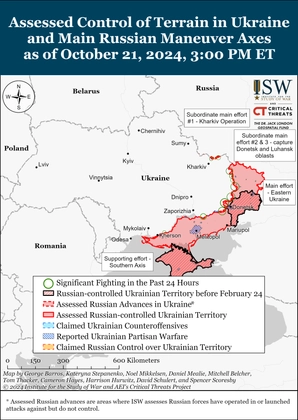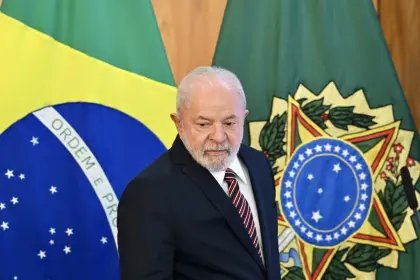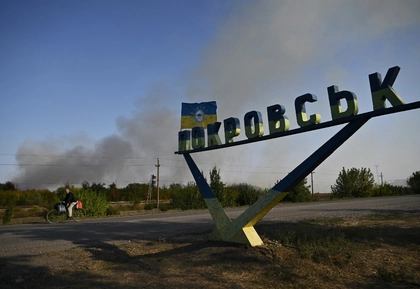Brazil called for a "new globalization" to address poverty and climate change as finance ministers from the world's top economies met Wednesday, but the Ukraine and Gaza wars risked overshadowing the plea.
"It is time to redefine globalization," Brazilian Finance Minister Fernando Haddad told his counterparts from the Group of 20 leading economies, opening their first meeting of the year in Sao Paulo.
JOIN US ON TELEGRAM
Follow our coverage of the war on the @Kyivpost_official.
"We need to create incentives to ensure international capital flows are no longer decided by immediate profit but by social and environmental principles," said Haddad, who gave his speech remotely after coming down with Covid-19.
The meeting, which follows one by foreign ministers in Rio de Janeiro last week, will lay the economic policy groundwork for the annual G20 leaders' summit, to be held in Rio in November.
Brazilian officials said they were working on a compact final statement that would steer clear of divisive issues such as the Ukraine and Gaza wars.
"We know the world is going through a tense geopolitical moment," said finance ministry executive secretary Dario Durigan.
But "there's consensus on the economic issues," he told journalists. "The whole world speaks the same economic language."
- Taxing the super-rich -
Brazilian President Luiz Inacio Lula da Silva wants to use the rotating G20 presidency this year to push issues like the fights against poverty and climate change, reducing the crushing debt burdens of low-income nations, and giving developing countries more say at institutions like the United Nations.

ISW Russian Offensive Campaign Assessment, October, 22, 2024
International Monetary Fund chief Kristalina Georgieva called for bolder climate action, urging countries to accelerate emissions cuts, end fossil fuel subsidies -- which reached an estimated $1.3 trillion worldwide last year -- and massively mobilize climate financing.
"The climate crisis is already upon us, and we have to admit we have been a bit slow to address it," she said at a panel discussion on the sidelines of the meeting.
Also on the agenda: increasing taxes on corporations and the super-rich.
"We need to ensure the billionaires of the world pay their fair share of taxes," said Haddad.
French Finance Minister Bruno Le Maire backed that call, telling journalists that Paris is pushing to "accelerate" international negotiations on a minimum tax on the ultra-wealthy.
However, Durigan said the issue was unlikely to make it into the final statement.
- G7 targets Russian assets -
Even before the meeting opened, the conflict in Ukraine took center stage.
The Group of Seven countries -- Britain, Canada, France, Germany, Italy, Japan and the United States, plus the European Union -- held their own meeting on the sidelines to discuss shoring up Western support for Kyiv.
Officials said the meeting -- attended remotely by Ukrainian Finance Minister Serhiy Marchenko -- focused on proposals to seize an estimated $397 billion in Russian assets frozen by the West.
US Treasury Secretary Janet Yellen said Tuesday the issue was "urgent."
But there were divisions among G7 members.
"I want to be very clear: We don't have the legal basis for seizing the Russian assets now. We need to work further... The G7 must act abiding by the rule of law," said France's Le Maire.
Ukraine has warned it is in dire need of more military and financial assistance, with a fresh $60 billion US package stalled in Congress.
The war in Gaza was also a recurring theme, amid fears Israel's offensive against Palestinian militant group Hamas could spiral into a wider war, with potentially catastrophic effects for the global economy.
Both conflicts could overshadow Brazil's bid to use the G20 to amplify the voice of the global south.
"It's a very tricky global context at the moment," said Julia Thomson, an analyst at Eurasia Group.
"The international agenda will probably hinder part of Brazil's ability to advance on some of the broader themes" of its G20 presidency, she told AFP.
Founded in 1999, the G20 accounts for more than 80 percent of global gross domestic product (GDP), three-quarters of world trade, and two-thirds of the world's population.
It has 21 members: 19 of the world's biggest economies, plus the EU and, participating as a member for the first time this year, the African Union.
You can also highlight the text and press Ctrl + Enter






